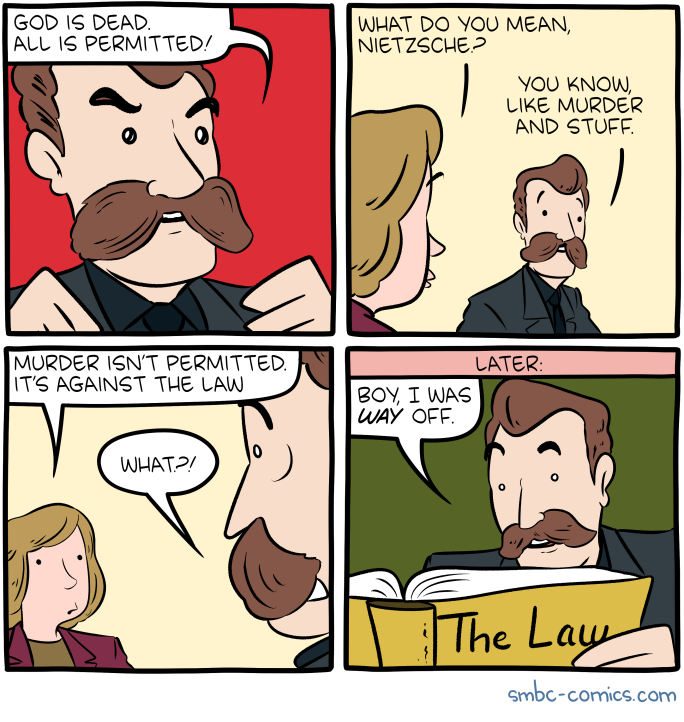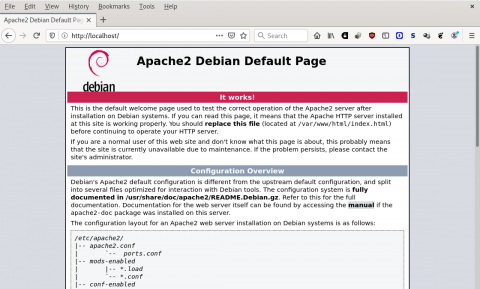Sunday, 29 August 2021 - 10:35am
This week, I have been mostly reading:
- More Money and Fewer Readers: The Paradox of Subscriber Journalism — Jack Shafer at Politico:
Muckraker George Seldes, one of America’s most accomplished independent journalists, built his paper-and-postage newsletter, In fact, into a 176,000-circulation phenomenon in the late 1940s, outpacing the circulation of both the New Republic and the Nation. Every bit as edgy in his journalistic approach as such Substack all-stars as Glenn Greenwald, Matt Yglesias or Matt Taibbi, Seldes should have gloried in his triumph. Instead, he was depressed by his lack of mass reach. No matter how hard he tried, he lamented in his final issue that he couldn’t connect very far beyond the “$5 liberals” who subscribed to In fact. He wanted a mass audience that would allow him to keep pace with the big newspapers that reached a million subscribers. He wanted his words to land as hard as theirs. Instead, the elite audience he’d cultivated became too much of an echo chamber.
- This Modern World — by Tom Tomorrow:

- Gee, Officer Kristen — Patrick Marlborough in Meanjin:
Have you ever had to explain to somebody that the Holocaust did in fact happen? Maybe a co-worker, or someone on Facebook, or a particularly curious if off-putting child? How about someone who holds your future in their hands? Someone who you’ve watched bully a man with one arm into a job stacking shelves at Coles? Someone who just last week referred to a severely intellectually disabled man as a ‘born slacker’? Have you ever had to turn to that person and explain to them, slowly and delicately, that Hitler was a very real man who did some very bad things and that the Holocaust was not a collective false memory cleverly beamed into our brains by the race of lizard men who secretly run the world? Oh, you haven’t? Well, just imagine you have for a moment. And that at the end of your brief yet exacerbated explanation they turn back to their computer, sniff, and say ‘well, that’s not what I’ve heard’ then tell you there’s a minimum wage job going in a town in the wheat-belt that’s best known for its record breaking suicide statistics—and that you have to take it, or starve.
- The Left Must Take Back Labour — Craig Murray:
If you believe that the Starmer project was a genuine belief that a right wing agenda would get Labour back into power, then the Starmer Project has totally failed on those terms. If you believe that the Starmer project was a scheme to neutralise any threat from Labour to the vast disparity of wealth in the UK and internationally, then it has spectacularly succeeded.
- Bow Down to Me, Pathetic Mortals, For I Have a Loud Engine — Susie Aquilina in McSweeney's:
It has arrived, oh feeble ones, the time for my automobile to barrel through your vicinity and announce my prowess—my vital and irrefutable masculinity. How is it that you know of my unquestioned and eternal virility? I have a vehicle that goes vroom vroom! Oh, how I pity you, you mite of a human, sitting there in silence, with no engine to rev. How you must want for power, that which I possess. The power to irritate everyone within a two-mile radius. This sound that emanates from my swift movement, this amplified mechanical sputtering, exclaims to all my undisputed vigor.
- The Central Banker’s New Clothes — Robert Skidelsky in Project Syndicate:
Friedman ignored what John Maynard Keynes called the “speculative demand for money,” which the British economist Ralph Hawtrey had succinctly identified in 1925. “When trade is slack, traders accumulate cash balances because the prospects of profit from any enterprise are slight, and the rate of [return] from any investment is low,” Hawtrey said. “When trade is active, an idle balance is a more serious loss, and traders hasten to use all their resources in their business.” This means that the state of the economy determines the quantity of money in circulation, and not vice versa. Uncertainty about future inflation is only one of many factors affecting business decisions, which reflect firms’ expectations of “customers at the door.” A central bank’s ability to control the price level and the level of economic activity through purely monetary operations is thus very limited. The bottom line is that for money to affect the economy in a predictable way, it must be spent in a predictable way. And that can happen only if the spender is the government.
- Saturday Morning Breakfast Cereal — by Zach Weinersmith:

- What the ephemerality of the Web means for your hyperlinks — John Bowers, Clare Stanton, and Jonathan Zittrain in Columbia Journalism Review:
Our team of researchers at Harvard Law School has undertaken a project to gain insight into the extent and characteristics of journalistic linkrot and content drift. We examined hyperlinks in New York Times articles, starting with the launch of the Times website in 1996 up through mid-2019, developed on the basis of a data set provided to us by the Times. […] We found that of the 553,693 articles within the purview of our study––meaning they included URLs on nytimes.com––there were a total of 2,283,445 hyperlinks pointing to content outside of nytimes.com. Seventy-two percent of those were “deep links” with a path to a specific page, such as example.com/article, which is where we focused our analysis (as opposed to simply example.com, which composed the rest of the data set). Of these deep links, 25 percent of all links were completely inaccessible. Linkrot became more common over time: 6 percent of links from 2018 had rotted, as compared to 43 percent of links from 2008 and 72 percent of links from 1998. Fifty-three percent of all articles that contained deep links had at least one rotted link.
Sunday, 22 August 2021 - 12:42pm
This week, I have been mostly reading:
- Son, It’s Time You Learned About Sex by Discussing David Bowie’s Huge Bulge in Labyrinth — Nathan Kamal in McSweeney’s Internet Tendency:
Hey sport, how you doing? Sorry to interrupt your homework, but you probably don’t mind, do you? Listen, son. Your mother and I had a discussion, and we think it’s time you learned about sex by discussing David Bowie’s huge crotch bulge in the movie Labryinth. I know, I know. This is awkward for me too. I wish my dad had been able to show me rock chameleon David Bowie’s enormous package when I was your age. But he was from a different generation, and also the movie wasn’t released until 1986.
- Racist hate crimes targeting Sydney's Indigenous homeless — Joanna Psaros in Independent Australia:
On Wednesday 24 March, Michael*, an Indigenous man, was asleep on Eddy Avenue outside of Central Station when he was shaken awake. A friend urgently warned him that known intruders – “Black haters” wearing jackets adorned with swastikas – were on the way. Michael was not fast enough and, less than a kilometre from Surry Hills Police Station, was violently beaten. Michael was not the only casualty that night. And that night was not the first that Sydney’s homeless were awoken to the reality of White supremacy while the rest of Australia’s eyes remained firmly shut.
- Doonesbury — by Garry Trudeau:
- Hollywood Lobbyists Intervene Against Proposal to Share Vaccine Technology — Lee Fang at the Intercept:
Advocates for temporarily suspending copyright enforcement claim that a truly global response to the pandemic requires open access to knowledge. While most of the public attention has been on vaccines, copyright enforcement also forbids sharing industrial designs used for the manufacturing of ventilators and other medical products crucial to fighting the pandemic. As early as last March, engineers who produced 3D-printed spare parts for ventilators faced warnings from corporate lawyers for potentially infringing on intellectual property and copyright protections. “The MPA, the music industries really aggressively resist any kind of copyright policy that bends toward access,” said Sean Flynn, director of the information justice and intellectual property program at the American University College of Law. This is not the first time that Hollywood lobbyists have intervened on a human rights-related treaty to maintain protections for copyrighted products.
- As a Centrist Democrat, I Ran on a Promise to Fix Killer Shower Clowns. But Now That I’m in Office, I Believe We Should Consider the Issue More Cautiously — Nathan Spring in McSweeny's:
For years, I’ve been going back and forth on whether or not there should be an organized response to these deadly clowns with spiders for hair behind the shower curtain, and I just don’t think the research is there yet. Of course, I’m very concerned about the one with two different colored eyes that screams my deepest secrets, but I’m just not sure I really want Big Government in my home. […] In a way, aren’t specially trained federal agents in our homes just as dangerous as that one clown that seems to be moving backward in time? I just think people overlook a lot of nuances. How you wish to deal with your shower clowns is a very personal decision. If we take that choice away, some people could actually be worse off. Some families might have access to magical weaponry or some sort of Omega Cube; if we get the federal government involved, do they lose access to those avenues? Is that fair?
Sunday, 8 August 2021 - 8:19am
This week, I have been mostly reading:
- Q for Conspiracy — Margaret Simons in Meanjjin:
Elliot Brennan, research associate at the United States Studies Centre, a research centre at the University of Sydney, has identified QAnon theories spreading through parenting websites and the ‘wellness’ movement—which includes the Pete Evans network. ‘If the current global conspiracy theory landscape were like a bath, QAnon would be the drain around which the entire body of water is spiralling,’ he writes. […] It’s best to put aside, so far as you are able, rigid ideas of left and right in trying to understand QAnon. Think that organic food is something inner-city lefties worry about? When the so-called ‘QAnon shaman’—the man in the horned head dress arrested after the Capitol Hill riots—requested organic food in prison, he was true to type. Organic food is big with QAnon—part of its suspicion of big business and chemical companies in particular. […] The wellness industry—naturopathy, homeopathy—is a recognised ‘soft’ path into the QAnon world. And who of us has not taken a vitamin supplement for which there is no, or only dubious, scientific evidence?
- The Insecurity Industry — Edward Snowden:
Prior to this week’s Pegasus Project, a global reporting effort by major newspapers to expose the fatal consequences of the NSO Group—the new private-sector face of an out-of-control Insecurity Industry—most smartphone manufacturers along with much of the world press collectively rolled their eyes at me whenever I publicly identified a fresh-out-of-the-box iPhone as a potentially lethal threat. Despite years of reporting that implicated the NSO Group’s for-profit hacking of phones in the deaths and detentions of journalists and human rights defenders; despite years of reporting that smartphone operating systems were riddled with catastrophic security flaws (a circumstance aggravated by their code having been written in aging programming languages that have long been regarded as unsafe); and despite years of reporting that even when everything works as intended, the mobile ecosystem is a dystopian hellscape of end-user monitoring and outright end-user manipulation, it is still hard for many people to accept that something that feels good may not in fact be good. Over the last eight years I’ve often felt like someone trying to convince their one friend who refuses to grow up to quit smoking and cut back on the booze—meanwhile, the magazine ads still say “Nine of Ten Doctors Smoke iPhones!” and “Unsecured Mobile Browsing is Refreshing!”
- I’m a Parkland Shooting Survivor. QAnon Convinced My Dad It Was All a Hoax. — David Gilbert at Vice:
Bill’s final semester at Marjory Stoneman Douglas High School in Parkland, Florida, was already difficult enough. He was part of the final graduating class of survivors of the 2018 shooting, and they all had just marked the third anniversary of the day 17 people were killed, nine of whom were Bill’s classmates. But Bill also had to deal with his father’s daily accusations that the shooting was a hoax and that the shooter, Bill, and all his classmates were paid pawns in a grand conspiracy orchestrated by some shadowy force.
- Snakes and Ladders — Stefan Collini in the London Review of Books:
Most people seem able to accept considerable inequality in outcomes if they believe that the procedures that lead to these outcomes are in some broad formal sense ‘fair’; that is, they don’t probe too much into what determines the distribution of advantage before the selection procedure begins. Perhaps most of us are inclined, at least some of the time, to think that ability and effort are the things most ‘deserving’ of differential rewards. And many people are more bothered, it seems, by the thought that some individuals may be ‘getting something for nothing’ (in the form of benefits, for example) than the thought that some individuals are paid a thousand times as much as others. There may be no entirely coherent or justifiable basis for these views, but their persistence makes it difficult to build support for fundamental change, just as ingrained notions of what one should be entitled to do for one’s children set narrow limits on what are considered acceptable forms of redistribution. Moreover, like lottery players more generally, many of us seem to prefer to fantasise about ‘making it’ within the existing system than to accept the overwhelming evidence that the odds are rigged against us.
- Dinosaur Comics! — by Ryan North:

- Anatomy of a Stock Market Bubble — Frank Veneroso at the Levy Institute:
With respect to moral hazard, the bailout measures during the 2007–9 crisis along with the quantitative easing policies that followed are just the most recent instances in a half-century pattern of ever-greater policy interventions that have distorted risk perceptions. Although low interest rates have not played a major role in past price-chasing bubbles, very low rates contributed to the duration and amplitude of the stock market’s trajectory over most of the last decade, and have operated as a signal to market participants that reinforces the moral hazard dimension. Regarding the growth of credit, although the Federal Reserve’s statistics do not reflect it, the United States has experienced a massive increase in nonfinancial enterprise debt. Due to a sustained high rate of corporate equity purchases financed with debt, this overarching expansion of credit has also made its way into the last decade’s bull market and steepened its price trajectory.
- The Future of Australian Universities: Bogans of the Pacific — Dr Binoy Kampmark for the Australian Independent Media Network:
The assault on science teaching and research is not merely the work of the surfeit barbarians in the chancellery. Australian higher education is imperilled, not merely by a university management class keen to squeeze students and productive staff into oblivion but a Federal Parliament that sees little value in them. A country facing the sharper side of climate change, brutal weather, environmental destruction and energy crises would be expected to be pouring money into degrees directed towards their study. But scientific illiteracy, along with other forms, is as contagious as the novel coronavirus. In October 2020, changes made to higher education with the blessing of the Centre Alliance and One Nation parties in the Australian Senate saw an effective reduction of 29% to the subject of environmental science. Dianne Gleeson, president of the Australian Council of Environmental Deans and Directors, called this budgetary slicing “one of the largest funding cuts to any university course.”
Sunday, 25 July 2021 - 3:36pm
This week, I have been mostly reading:
- The Betrayal At The Heart of Sanders, AOC and Corbyn’s Refusal To Use Power — Ian Welsh:
Here’s a rule: power everyone knows you won’t use, you don’t have. Left-wingers are not credible because they never use their power. We saw this with Corbyn in Britain when he repeatedly refused to throw out MPs who challenged him or allow MPs to be re-selected (primaried, in effect.) There was nothing they couldn’t do to his cause or him that would get him to retaliate. […] Voters don’t like wimps who won’t use their power and they are correct in this: if you won’t fight, it doesn’t matter what you believe. Corbyn was the man who could take any punch, but would never throw one, no matter what his opponents did.
- Vaccine Guidance — xkcd by Randall Munroe:

- Dewey, Piaget, and Frosted Mini Wheats — Alfie Kohn:
John Dewey described how a curriculum that’s based on students’ questions and connects with their experiences has “an inherent attracting power.” But creating such a curriculum takes time and skill, and it also requires the adult to make the learners themselves the “center of gravity” in the classroom. It’s considerably easier, Dewey pointed out, just to take a prefabricated lesson, which may not be particularly relevant or meaningful to students, “and then by trick of method to arouse interest, to make it interesting; to cover it with sugar-coating; to conceal its barrenness by intermediate and unrelated material.” These days an awful lot of such sugarcoating is done digitally — for example, with apps that add points and levels to “gamify” a list of decontexualized facts or skills that students are required to master. When you get right down to it, much of ed tech is really an exercise in sugarcoating. But so are plenty of well-established analog schemes: desperately perky sidebars in textbooks to distract students from the dreariness of the main text; contrived word problems in math to create the appearance of relevance for what is still just an exercise in mechanically applying formulas and algorithms; classroom test-prep sessions restyled as TV game shows in which students are made to compete to see who has crammed more bits of useless knowledge into short-term memory.
- Bizarro — by Wayno & Piraro:

- 'I'm sorry, but it's too late' - unvaccinated patients beg for shot — USA Today pays John Bacon and Jorge L. Ortiz to read Facebook so we don't have to:
Dr. Brytney Cobia, a hospitalist at Grandview Medical Center in Birmingham, wrote in a recent Facebook post she is treating a lot of young, otherwise healthy people for serious coronavirus infections. "One of the last things they do before they're intubated is beg me for the vaccine," she wrote. "I hold their hand and tell them that I'm sorry, but it's too late." In her post, Cobia wrote that when a patient dies, she hugs their family members and urges them to get vaccinated. She said they cry and tell her they thought the pandemic was a "hoax," or "political," or targeting some other age group or skin color.
Sunday, 11 July 2021 - 2:50pm
This week, I have been mostly reading:
- Do Adults Really Not Remember School Sucked? — Ian Welsh:
School is, well, mostly bad. It teaches things slowly, it mostly trains obedience, and it’s a social horror show. When we say social dynamics are like high school, we never mean anything good, and there are dozens of movies about how awfully students treat each other. And most of what is taught in school and university is quickly forgotten. I used to amuse myself by asking recent university grads what they had learned, most of them could barely remember anything. Since I was widely read, often I knew enough to ask basic questions about their discipline, and they wouldn’t know the answers.
- How to Write About Iran: A Guide for Journalists, Analysts, and Policymakers — Ladane Nasseri in McSweeney's Internet Tendency:
Whether you are working from your DC office or your home in LA or New York, here’s all you need to know to become an expert on Iran. 1. Always refer to Iran as the “Islamic Republic” and its government as “the regime” or, better yet, “the Mullahs.” 2. Never refer to Iran’s foreign policy. The correct terminology is its “behavior.” When U.S. officials say Iran “must change its behavior” and “behave like a normal country,” write those quotes down word for word. Everyone knows that Iran is a delinquent kid that always instigates trouble and must be disciplined.
- Dinosaur Comics — Ryan North:

- Four-day week 'an overwhelming success' in Iceland — by somebody who doesn't get a byline for lightly editing a press release, at the BBC:
Trials of a four-day week in Iceland were an "overwhelming success" and led to many workers moving to shorter hours, researchers have said. The trials, in which workers were paid the same amount for shorter hours, took place between 2015 and 2019. Productivity remained the same or improved in the majority of workplaces, researchers said. A number of other trials are now being run across the world, including in Spain and by Unilever in New Zealand. In Iceland, the trials run by Reykjavík City Council and the national government eventually included more than 2,500 workers, which amounts to about 1% of Iceland's working population.
- The Delusional Scam of the Self-Help Book Industry — Ed Zitron:
These books are adjacent to the world of personal branding, usually promising to provide an illuminating 100-300 pages of tips that will totally change your life. A commenter added an important addition to the thread that these books usually make vast assumptions about what things a person can actually change in their life, describing them as “the actual start point of an echo chamber,” and she’s totally right - these books are written for and geared toward a very specific audience of privileged individuals who have their life decisions affirmed and their failures explained away. The specific assumption they make is that everybody comes from the same sort of background - that they communicate in the same way, that they grow up the same way, and that, much like the world of advice articles and hustle culture, your failure to succeed is only a result of you not working hard enough. […] It’s frustrating, because these books are inherently manipulative. Their most crucial failure is the make-believe positivity of the world - even when they frame life as difficult or challenging, they couch that framing with the idea that it is just hard work that will make you succeed. Agents and publishers likely don’t want to put books on the stands that give advice that basically says “if you didn’t grow up with some form of wealth or privilege, you are going to have a 1000% harder time doing anything this book says.” Framing the world correctly - as oppressive and depressing to most people - isn’t the encouragement that people are looking for, and would be considered “cynical” or “polarizing.”
- Normal Conversation — xkcd by Randall Munroe:

Sunday, 27 June 2021 - 10:08am
Last month, I was mostly lying on my back and groaning, but also reading:
- Anti-vaxxers are weaponizing Yelp to punish bars that require vaccine proof — Tanya Basu in MIT Technology Review makes one so glad to be a member of this species:
On the first hot weekend of the summer, Richard Knapp put up a sign outside Mother’s Ruin, a bar tucked in Manhattan’s SoHo neighborhood. It had two arrows: one pointing vaccinated people indoors, another pointing unvaccinated people outdoors. The Instagram post showing the sign (above) quickly went viral among European anti-vaxxers on Reddit. “We started receiving hate mail through the Google portal,” Knapp says, estimating he’d received about a “few dozen” emails: “I’ve been called a Nazi and a communist in the same sentence. People hope that our bar burns down. It’s a name and shame campaign.” It wasn’t just the emails. Soon, his bar started receiving multiple one-star reviews on Yelp and Google Reviews from accounts as far away as Europe.
- Bloom County — by Berkeley Breathed:
- Not ‘Apartheid in the West Bank.’ Apartheid — Gideon Levy in Haaretz:
It’s impossible to separate the territories and Israel, and it’s impossible to consider the occupation temporary. The conclusion: Israel is an apartheid state. Just as in South Africa it was ludicrous to talk about democracy, even though elections were held, it’s ridiculous to view Israel as a democracy. If part of it is tyranny, all of it is tyranny. It’s impossible to argue with the fact that in the occupied territories two systems of rights and laws exist based on the separating of nationalities. No fact is more certain. The temporariness of the occupation is also an outdated argument. That’s why we have to stop trying to terrify people and claim that the right wing is leading us to apartheid. Apartheid has been here since 1948.
- Simulated Person Monthly — Phil Are Go!:

- YouTube Financially Deplatforms Swath Of Indie Media Accounts — :
Progressive commentators Graham Elwood, The Progressive Soapbox, The Convo Couch, Franc Analysis, Hannah Reloaded and Cyberdemon531 have all received notifications from YouTube that their videos are no longer permitted to earn money through the platform’s various monetization features, as has Ford Fischer, a respected freelancer who films US political demonstrations. No explanation has been offered for this decision beyond the vague claim that “your channel is not in line with our YouTube Partner Program policies” due to “harmful content”. […] Financial deplatforming is censorship. People were given an opportunity to devote themselves to the vocation of creating media outside the gatekeeping apparatus of billionaire news institutions, which is arguably the single most important vocation anyone can give themselves to in our world right now, and they built their lives around their ability to do this. Now it’s being ripped away from them; their literal jobs are being taken away. They were offered a reason to think they’d be able to make a living doing very important work, and then they were sucker punched with what amounts to political censorship.
As Yves Smith succinctly put it, "if your business depends on a platform, you don’t have a business". - Bizarro — by Wayno and Piraro:

- YouTube Bans and Then Unbans Right Wing Watch, a Media Watchdog Devoted to Exposing Right-Wing Conspiracies — Justin Baragona at the Daily Beast:
Right Wing Watch senior fellow Kyle Mantyla told The Daily Beast that this had been an ongoing problem with YouTube for years, despite their efforts to make clear to the platform that their videos worked to expose extremism and contained disclaimers to that effect. […] Launched in 2007, Right Wing Watch has posted thousands of clips of prominent right-wing figures making controversial comments, perhaps most famously including televangelist Pat Robertson and conspiracy theorist Alex Jones. In fact, Right Wing Watch’s exposure of Jones’ false and conspiratorial rhetoric was key to YouTube and other social-media platforms eventually removing his channel InfoWars from their sites. Notably, many of the right-wing outlets and personalities that Right Wing Watch chronicles are not currently suspended or banned from posting content to YouTube, while RWW has been booted for merely exposing their comments and content—something Mantyla noted as being particularly ironic.
- Bloom County — by Berkeley Breathed:
Sunday, 13 June 2021 - 3:35pm
This week, I have been mostly reading:
- Phil Are Go!:

- ‘Journalists’ Who Smear Assange Are Pure Scum — Caitlin Johnstone, who I wish would stop being so circumspect and just say what she thinks:
If I had written an article in a major publication claiming there was “no real reason” to believe Assange would face extradition proceedings if he left the Ecuadorian embassy, and then that claim had proved horrifyingly wrong, I personally would have done what any normal person would do and shut the entire fuck up about Julian Assange for the rest of my life. Not James Ball though. There’s a certain type of personality that guarantees it will always fail upward because it possesses a remarkable combination of power-worshipping obsequiousness, a total lack of shame, and a complete lack of scruples. It’s the same type of personality that still gets lucrative punditry work after pushing for the Iraq invasion. James Ball has no more business opining about Julian Assange than John Bolton has about the merits of interventionist foreign policy, yet both remain visible and vocal. Because they are the same kind of creature. I’m pretty good with words, but I’ve never succeeded in finding any which adequately articulate the absolute depravity of the mass media smearmeisters who’ve spent years getting paid to churn out deceitful hit pieces about Assange while he’s silenced and unable to defend himself. There’s simply no one lower. There’s shit, there’s the shit that would come out of shit if shit could shit, and then there’s people like James Ball.
- The world's greatest democracy — This Modern World by Tom Tomorrow:

- CEOs are hugely expensive – why not automate them? — Will Dunn at the New Statesman:
In the longer term, as companies commit to greater automation of many roles, it's pertinent to ask whether a company needs a CEO at all. A few weeks ago Christine Carrillo, an American tech CEO, raised this question herself when she tweeted a spectacularly tone-deaf appreciation of her executive assistant, whose work allows Carrillo to “write [and] surf every day” as well as “cook dinner and read every night”. In Carrillo’s unusually frank description of the work her EA does – most of her emails, most of the work on fundraising, playbooks, operations, recruitment, research, updating investors, invoicing “and so much more” – she guessed that this unnamed worker “saves me 60% of time”. […] If most of a CEO's job can be outsourced, this suggests it could also be automated. But while companies are racing to automate entry- and mid-level roles, senior executives and decision makers show much less interest in automating themselves.
- Bloom County — by Berkeley Breathed:
- Trump's Failed Blog Proves He Was Just Howling Into the Void — Philip M. Napoli at Wired:
As platforms like Twitter and Facebook generated massive user bases, introduced scrolling news feeds, and developed increasingly sophisticated algorithmic systems for curating and recommending content in these news feeds, they became a vital means by which online attention could be aggregated. Users evolved, or devolved, from active searchers to passive scrollers, clicking on whatever content that their friends, family, and the platforms’ news feed algorithms put in front of them. This gave rise to the still-relevant refrain “If the news is important, it will find me.” Ironically, on what had begun as the quintessential pull medium, social media users had reached a perhaps unprecedented degree of passivity in their media consumption. The leaned-back “couch potato” morphed into the hunched-over “smartphone zombie.” The failure of Trump’s blog tells us that even the kind of impassioned political extremists that form the core of Trump’s base of support are so entrenched in their passive, social-media-dependent mode of media consumption that a traditional blog, absent accompanying social media accounts to generate algorithmic amplification, is incapable of gaining a fraction of the online engagement that a single tweet could achieve. Not even the most public of public figures can break free from the platform dependency that largely dictates the distribution of audience attention online. If Trump’s blog can’t gain traction without direct access to the audience aggregation and amplification tools of social media, then perhaps nothing can.
- Rob Rogers:
- Consent-Manufacturing For Patriot Act II Continues — Caitlin Johnstone again:
As we discussed previously, Biden has often boasted of being the original author of the Patriot Act years before it was rapidly rolled out amid the fear and blind obsequiousness of the aftermath of 9/11. Now in the aftermath of the Capitol riot we are seeing a push to roll out new authoritarian laws around terrorism, this time taking aim at “domestic terror”, which were also in preparation prior to the event used to manufacture support for them. In a new article for Washington Monthly titled “It’s Time for a Domestic Terrorism Law”, Bill Scher argues against left-wing critics of the coming laws like Glenn Greenwald and Jacobin’s Luke Savage saying such “knee-jerk reactions” against potential authoritarian abuses fail to address the growing problem. He opens with the acknowledgement that “Joe Biden’s transition team was already working on a domestic terrorism law before the insurrection,” and then he just keeps on writing as though that’s not weird or suspicious in any way.
Sunday, 30 May 2021 - 8:53am
This week, I have been mostly reading:
- Snopes Debunked the World. Then the World Changed. — Colin Dickey in Medium:
Reading Snopes in the era of urban legends reassured us that the world wasn’t as scary as we thought, but it did more than that. Urban legends also have the capacity to generate shame. Believing them is seductive, but as soon as one is debunked, you might feel dumb and sheepish for thinking you could ever believe it in the first place. Snopes allowed us to feel superior to those who’d been duped while covering up our own gullibility. […] These days, most of the Top 50 stories on Snopes (as of this writing) are explicitly political: rumors, lies, and fabricated screenshots concerning Joe Biden, Alexandria Ocasio-Cortez, Kamala Harris, and Nancy Pelosi. Others are attempts to unravel the still-unfolding story of what happened on January 6, when a conspiracy theory–addled mob launched a treasonous assault on the Capitol. The site still does the work of debunking, but surfing it now is an exercise in exhaustion and dismay. […] These tales remind their listeners that the world is indeed dangerous — Democrats with their socialism, Muslims with their sharia law, Mexicans with their job-taking-what-have-you — but no longer is the message to stay at home with your family and be safe. Instead, they stoke anger, weaponize partisanship, and foster tribalism. These stories are about team-building as much as anything else. And their goal is increasingly to convince you to take to the streets and take back what’s (presumed to be) yours.
- Bored — Saturday Morning Breakfast Cereal by Zach Weinersmith:

- Tony Benn on Revolutionary Christianity — a lecture from 1980 republished in Tribune Magazine:
In this way a bridge was constructed that carried the message of brotherhood and sisterhood from Christianity to secular humanism, a bridge that carried the ethics across but left the creeds behind. Across this bridge there is now a growing two-way traffic of people and ideas. Christians involved in political action cross it one way. Humanists can cross it to go back to the teachings of Jesus and study them. In a theological sense there is a great divide between the Christians on one side and the humanists on the other. But it is impossible to escape the conclusion that over that bridge revolutionary ideas deriving from the Bible and the carpenter of Nazareth have spread to influence hundreds of millions of people for whom the need for neighbourly love within a common humanity is immediately apparent in a way that the mysticism, liturgies, and arid screeds may appear to be less relevant.
- Doonesbury — by Gary Trudeau:
Sunday, 9 May 2021 - 2:48pm
This week, I have been mostly reading:
- The invention of whiteness: the long history of a dangerous idea — Robert P Baird in the Guardian:
As late as 1694, a slave-ship captain could still question the racial logic newly employed to justify his trade. (“I can’t think there is any intrinsick value in one colour more than another, nor that white is better than black, only we think it so because we are so,” Thomas Phillips wrote in his diary.) But whiteness quickly proved itself a powerful weapon that allowed transatlantic capitalism to secure the labour – “white” and African – it needed. As the historian Theodore Allen put it, “The plantation bourgeoisie deliberately extended a privileged status to the white poor of all categories as a means of turning to African slavery as the basis of its system of production.” The economic utility of the idea of whiteness helped spread it rapidly around the world. Du Bois was not wrong to call it a religion, for like a religion, it operated at every psychological, sociological and political scale, from the most intimate to the most public. Like a religion, too, it adapted to local conditions. What it meant to be white in British Virginia was not identical to what it would mean in New York before the American civil war, in India during the Raj, in Georgia during Jim Crow, in Australia after Federation, or in Germany during the Third Reich. But what united all these expressions was a singular idea: that some group of people called white was naturally superior to all others. As Benjamin Disraeli, the Victorian prime minister and one of the most committed race ideologists of his time, put it, “race implies difference, difference implies superiority, and superiority leads to predominance”.
- Is herd immunity to COVID-19 possible? Experts increasingly say no. — Elizabeth Weise at USA Today:
Last summer, the World Health Organization put the combined infection and vaccination thresholds needed to break the chain of transmission at 60% to 70%. By December, Fauci put the number for the U.S. at 75% to 85%. With the appearance of highly transmissible variants, some have bumped it to 90%. The unwillingness of some Americans to get vaccinated, however, likely has put the number out of reach. "What has surprised me most is the incomprehensible rejection of science even among otherwise intelligent people," Poland said. "I’m truly flabbergasted to be watching this on a grand scale." The split has become political. About 79% of self-identified Democrats say they have been vaccinated or intend to do so soon, compared with 46% of Republicans. About 3 in 10 Republicans say they will definitely not get vaccinated, according to a Kaiser Family Foundation poll. That means America could end up looking like a patchwork quilt, with areas where COVID-19 infections are low and others where the virus continues to thrive.
- Doonesbury — by Gary Trudeau:
- Unfair Use: Anti-Interoperability and Our Dwindling Digital Freedom — Cory Doctorow in the Reboot:
When you look at how “IP” is used by firms, a very precise — albeit colloquial — meaning emerges: “IP is any law that I can invoke that allows me to control the conduct of my competitors, critics, and customers.” That is, in a world of uncertainty, where other people’s unpredictability can erode your profits, mire you in scandal, or even tank your business, “IP” is a means of forcing other people to arrange their affairs to suit your needs, even if that undermines their own needs.
- The Instagram ads Facebook won't show you — Signal's Jun Harada:
Companies like Facebook aren’t building technology for you, they’re building technology for your data. They collect everything they can from FB, Instagram, and WhatsApp in order to sell visibility into people and their lives. […] However, Facebook’s own tools have the potential to divulge what is otherwise unseen. It’s already possible to catch fragments of these truths in the ads you’re shown; they are glimmers that reflect the world of a surveilling stranger who knows you. We wanted to use those same tools to directly highlight how most technology works. We wanted to buy some Instagram ads.

- Qualia — Cory Doctorow in Locus:
Quantitative disciplines – physics, math, and (especially) computer science – make a pretense of objectivity. They make very precise measurements of everything that can be measured precisely, assign deceptively precise measurements to things that can’t be measured precisely, and jettison the rest on the grounds that you can’t do mathematical operations on it. This is the quant’s version of the drunkard’s search for car-keys under the lamp-post: we can’t add, subtract, multiply or divide qualitative elements, so we just incinerate them, sweep up the dubious quantitative residue that remains, do math on that, and simply assert that nothing important was lost in the process.
Number Nine, Number Nine…
I swore I'd never go back to web development. I can pinpoint the precise moment.
I was fat, prematurely old, bald, grey bearded, and dancing up and down the hall in my underpants with the phone pressed to my ear, explaining to a "mate's rates" client why the impossible things he was asking for were impossible. It was made all the more infuriating by the fact that this client fancied himself a guru, boasted of his mastery of the dark arts of awk, sed, and groff, and insisted that he sought my assistance only because his time was so in demand elsewhere.
So while he was insisting that he didn't understand why I was being so difficult, and that it should be trivial to create a totally secure system that didn't require his users to supply an email address or remember a password, I lost my rag.
I can't even remember how I resolved that situation. I think I might have given him his deposit back. But I did resolve to call it a day, prise my web developers' shingle from the wall, and dither about for a while.
Dithering about was no less lucrative, and much better for my health, but there's no fighting age, and lately my body has started falling to bits, so suddenly minimum wage physical labour seems less viable. I find myself thinking where's the harm in looking at what's been going on since I've been away?
It's true I spent a miserable decade trying to be a tech entrepreneur in a small town where the prospective client base had a serious problem with literacy. Not technical literacy; I mean just reading and writing.
The only people who around here who can spell are the very many extremely busy tattoo artists, and even that proficiency is limited to names like "Sienna" or "Kaiden".
It's all very endearing to declare a devotion to one's offspring so indelibly, but surely there are times — during moments of consensual physical intimacy, for example — where one doesn't want to be taken out of the moment by a list of offspring running across a pair of shoulder blades or down a hairy forearm. Or maybe the thought of one's rampant fecundity contributes to the mood. Eww. Suburbia is sick. I digress.
I did enjoy becoming quite proficient at my trade, despite the lack of good it did me, and also the camaraderie of the Drupal community. Perhaps if I were to broaden my sights beyond Mount-Druitt-by-the-Sea, I might find this a trade I could ply from the comfort of my cat-drawn bath chair well into my dotage.
So I've decided to dip my arthritic old toes back into the water by migrating my old Drupal 7 personal website to Drupal 9. The plan is to migrate rather than upgrade in place. I would be creating a new, functionally equivalent and/or superior, site and copying the content (such as it is) over. Upgrading, at a distance of this many years is out of the question.
Preparing Your Work Surface
I'm going to start with a development site on my local computer and than try to use modern best practice to deploy on my Linode server.
Well, this is embarrassing. Surprisingly, my days as an IT professional comfortably predate the purchase of my now-rusting hulk of a desktop PC. It doesn't even have Apache on it. And all my work documentation, including my LAMP install checklist was on a long-gone Drupal site. I'm a hoarder, and don't often burn my bridges, but when I do I always regret it.
So, I'm going to have to remember/relearn all this:
# apt-get install apache
# apt-get install php
# apt-get install mariadb-server mariadb-client
And I at least get the Debian Apache placeholder page:
Look how lovely and calming it is. It should never change. I think I want it on my grave stone. It says, in essense, "Don't feel sad or anxious. Everything is alright."
Surprisingly, Moore's Law has caught up with Drupal, and so Debian 10's default PHP memory allotment is fine. Nevertheless I know I'm going to have to tweak limits when I get to coping with image files, so to pre-empt the urge to hack php.ini:
# cd /etc/php
# touch local.ini
# ln -s /etc/php/local.ini /etc/php/7.3/apache2/conf.d/10-local.ini
So any custom settings go in /etc/php/local.ini, and when PHP is upgraded, I just have to remember to create another symlink of my custom settings for the new version, rather than be prompted to investigate changes to php.ini on every `apt-get dist-upgrade`. (Who doesn't just cross their fingers and opt to keep the current version whenever that happens?)
Composer
I'm a Debian person. I like installing software from Debian via apt. I don't like installing binaries from tarballs, much less compiling from source. Really uncomfortable about the idea of layering another package management system on top of apt.
That said, Composer now does the package management for Drupal modules that was hitherto done by our own command line Swiss Army knife, drush. Why reinvent the wheel when you can hand that job over to something that the wider PHP developer community is already using? I'm okay with that.
Also, why not use Composer to install Drupal itself? Yeah… okay.
Debian 10 ships with Composer v1. When you try to use that to install anything, the package repository fires off a warning message, and because I'm skittish, I comply, and manually install Composer v2 according to instructions. With one wrinkle: anything I install that hasn't come from an apt package repository, I put in /opt and symlink the executable to /usr/bin. That way, I always know that anything I use which came from a from a source not in /etc/apt/sources.list can be found there. I love a bit of en passant documentation.
Drupal 9
As I said, I no longer have my old notes, and the official Drupal documentation (which is a mess; some things never change - at least not for the better) mostly refers to Drupal 8 rather than Drupal 9. This isn't quite the offense it seems to be at first glance, as due to Drupal's new continuous upgrades policy, Drupal 9 is just Drupal 8 minus deprecated code. New features get added incrementally with each minor version release, so there is no vast chasm of incompatibility between Drupal 8 and 9 (or later) as there was between Drupal 7 and 8 (and earlier).
So I decide to sally forth in total ignorance with the intention of remedying deficiencies in system requirements as and when they arise, thus:
$ cd /var/www
$ composer create-project drupal/recommended-project local.mjd.id.au
[…]
drupal/core 9.1.7 requires ext-dom * -> it is missing from your system. Install or enable PHP's dom extension.
Okay, so:
# apt-get install php-xml$ composer create-project drupal/recommended-project local.mjd.id.au
[…]
drupal/core 9.1.7 requires ext-gd * -> it is missing from your system. Install or enable PHP's gd extension.
Right, I'm fed up with this already. I go back to the documentation to find the PHP modules I need for a basic install and:
# apt install php-gd
# apt install php-curl
# apt install php-mbstring
Now:
$ composer create-project drupal/recommended-project local.mjd.id.au
[…]
Congratulations, you’ve installed the Drupal codebase
from the drupal/recommended-project template!
And sure enough, there's a whole mess o' Drupal in /var/www now. Awesome. Just need an empty database and some Apache configuration.
PHPMyAdmin didn't make it into Debian 10, for some reason, though it is in testing/unstable.
I can't be doing with composing my own SQL queries. My brain is stubbornly multi-dimensional, and refuses to serialise. I love that SQL exists in ubiquity, and admire people who live and prosper in a world of LEFT INNER JOINs and so on, but it's not for me. Not to worry, Debian Backports to the rescue, so I can now create an empty database without breaking my brain.
I'm almost certain that the documentation on drupal.org used to have a sample Apache virtual host configuration template, but I'm blowed if I can find it, so I cheat and copy from my current site. What I put in /etc/apache2/sites-available/local.mjd.id.au.conf looks something like this:
<VirtualHost *:80>ServerAdmin me@my.domainServerName local.mjd.id.auRewriteEngine onRewriteCond %{HTTP_HOST} !^local.mjd.id.au [NC]RewriteCond %{HTTP_HOST} !^$RewriteRule ^/(.*) http://local.mjd.id.au/$1 [L,R]DocumentRoot /var/www/local.mjd.id.au/web<Directory />Options FollowSymLinksAllowOverride None</Directory><Directory /var/www/local.mjd.id.au/web>RewriteEngine onRewriteBase /RewriteCond %{REQUEST_FILENAME} !-fRewriteCond %{REQUEST_FILENAME} !-dRewriteRule ^(.*)$ index.php?q=$1 [L,QSA]Options Indexes FollowSymLinks MultiViewsAllowOverride AllOrder allow,denyallow from all</Directory>ErrorLog /var/log/apache2/error.logLogLevel warnCustomLog /var/log/apache2/access.log combinedServerSignature On</VirtualHost>
Then it's:
# a2enmod rewrite
# a2ensite local.mjd.id.au
# systemctl restart apache2
And I can finally fire up a web browser and go through the familiar Drupal web install process. I opt for the "minimal" install, which is no exaggeration:
That is well minimal. This is the new "Stark" theme, which does not fail to live up to its name.
Switching to the new "Olivero" theme feels a bit more comfortable:
Still, I can't get around without the trusty old Admin Toolbar module so let's have Composer download that for us:
$ composer require drupal/admin_toolbar
Using version ^3.0 for drupal/admin_toolbar
./composer.json has been updated
Running composer update drupal/admin_toolbar
Loading composer repositories with package information
Updating dependencies
Lock file operations: 1 install, 0 updates, 0 removals
- Locking drupal/admin_toolbar (3.0.0)
Writing lock file
Installing dependencies from lock file (including require-dev)
Package operations: 1 install, 0 updates, 0 removals
- Downloading drupal/admin_toolbar (3.0.0)
- Installing drupal/admin_toolbar (3.0.0): Extracting archive
Package doctrine/reflection is abandoned, you should avoid using it. Use roave/better-reflection instead.
Generating autoload files
Using the web UI, I enable that module and also the Claro administrative theme and holy cow, this is starting to look like Drupal:
Drush
While I can now install bits of Drupal with Composer, I'm still missing the ability to actually enable/disable/configure those bits from the command line. For that I need Drush, which sounds like a yeast infection, but I think originally implied "Drupal shell":
$ composer require drush/drush
Drush now lives as a per-site instance under the Drupal root as vendor/bin/drush, which is a pain to type, so there's a wrapper script which will find the the instance appropriate to your current working directory:
# cd /opt
# wget https://github.com/drush-ops/drush-launcher/releases/latest/download/drush.phar
# chmod 755 drush.phar
# ln -s /opt/drush.phar /usr/bin/drush
So now I can go:
$ drush status
Drupal version : 9.1.7
Site URI : http://default
DB driver : mysql
DB hostname : localhost
DB port : 3306
DB username : mjdidau
DB name : mjdidau
Database : Connected
Drupal bootstrap : Successful
Default theme : olivero
Admin theme : claro
PHP binary : /usr/bin/php7.3
PHP config : /etc/php/7.3/cli/php.ini
PHP OS : Linux
Drush script : /opt/drush.phar
Drush version : 10.4.3
Drush temp : /tmp
Drush configs : /var/www/local.mjd.id.au/vendor/drush/drush/drush.yml
Install profile : minimal
Drupal root : /var/www/local.mjd.id.au/web
Site path : sites/default
Files, Public : sites/default/files
Files, Temp : /tmp
The full list of drush commands used to be had via `drush help`. I always derived some degree of confessional satisfaction from regularly typing `drush help|less`. `drush help` is now reserved for getting help on a particular command; to see all currently-available commands, one must use `drush list`, which when paginated is also quite appropriate.
There are approximately two people on the planet who will be astonished to find from the above that I'm installing a site in sites/default. I was always an advocate for Drupal's multisite capacity; the ability to run multiple websites from a single Drupal install, all sharing the same codebase, core and "contributed" modules and themes. You'd have each site's files, custom modules or themes sitting under sites/sitename.com.
In principle it sounds wonderful. In practice, it never quite worked. Imagine upgrading two sites at once. Then imagine upgrading a dozen sites at once. I never had, for instance, one single Drupal 6 instance. I had a Drupal 6.0 instance and a Drupal 6.1, and a Drupal 6.2, and so on, and I would shift sites one by one up the ladder as necessity dictated.
Ironically, the new Drupal versioning/upgrading regime makes that dream more realistic, but Moore's law has caught up. Server space is so much cheaper than the cost of even my labour that the most trivial website can afford the overhead of all those files it could easily be sharing with others.
That overhead is not trivial. In terms of disk usage, this new, entirely content-free website, currently looks like this:
$ du -chs *4.0K composer.json224K composer.lock38M vendor128M web166M total
A hundred and sixty-six meg of nothing is pretty extreme. Better start adding some content, I suppose…










